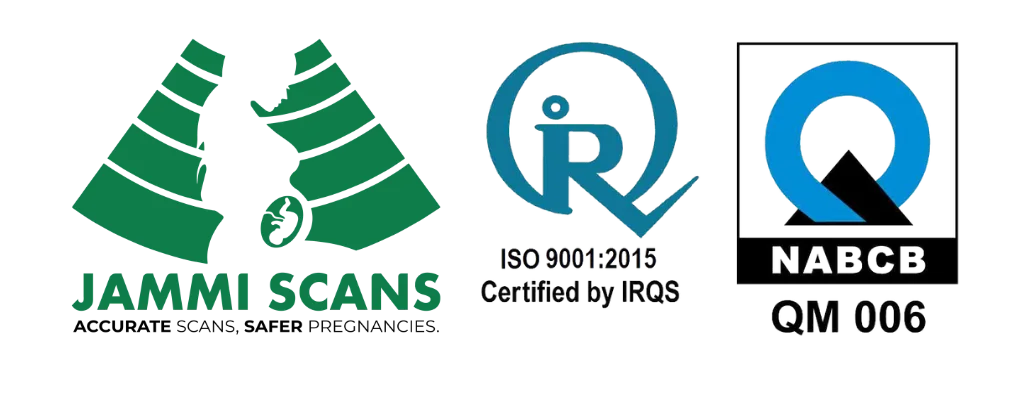There can be no better feeling than a movement of life inside you. This explains the importance and value of the care you should give to your pregnancy’s health. This blog explains everything you need to know about NT scan during pregnancy.
The first-trimester pregnancy scan (NT scan) is the initial and crucial step for many more things to come your way. So, are you aware of what your doctor can observe in your NT scan?
Table of Contents
ToggleWhat Is An NT or First Trimester Scan?
Nuchal translucency scan (NT) or the First Trimester scan is performed between the 12 to 13 weeks of your gestation.
The importance of this scan during your pregnancy is to screen for any chromosomal disorders at birth.
What Do I Need to Know about NT Scan during Pregnancy?
NT scan is a non-invasive procedure done during the first trimester of pregnancy. Being an ultrasound, your healthcare provider will ask you to lie flat and start the procedure by applying a gel to your abdomen.
A transducer is then moved to your abdomen that produces the 2D images of your baby on the monitor.
Does Baby Position Matter In An NT Scan?
Studies conclude that the gestation period and fetal neck position can impact the accuracy of the nuchal translucency measurement.
Hence, for an NT scan, the fetal neck needs to be in a neutral position for accuracy. If your baby’s position shows any discrepancy, you would be advised to have a repeat scan after 30minutes of walking or drinking some water.

What Will You Find about NT Scan During Pregnancy?

Nuchal Translucency:
The main study includes the observation of the nuchal translucency fluid at the back of your baby’s neck.
Nuchal translucency is a fluid-like transparent tissue found behind the neck of the fetus.
In the beginning stages of pregnancy, it is not unusual for a fetus to have transparent tissues, but the amount at which they appear should be considered.
Nasal bone:
What is a fetal nasal bone? Fetal nasal bones are the two small bones that extend from the skull that forms the echogenic tip of the nose.
The absence of nasal bone acts as a specific soft marker in identifying the baby with a chromosomal disorder (especially Down syndrome).
Almost 66.7% of babies with down syndrome show an absence of nasal bone in theri first-trimester scan.
However, the accuracy of the same increases when the Double marker blood test is combined with the NT scan.
How Accurate is NT Scan And Blood Test?
Combining the first-trimester scan with a Double marker blood test gives you 85% of accuracy in screening your fetus for genetic disorders.
In contrast, if you take up only the NT scan, the accuracy drops to 70-75%.
Amniotic fluid level:
The amniotic fluid is a clear yellowish liquid surrounding the baby inside the womb.
Amniotic fluid is responsible for:
- Protecting the fetus from outside pressure
- Fetal muscle and bone development
- Controlling infection and temperature
- Preventing the umbilical cord from getting compressed
- Lung development. The baby practices breathing and swallowing the amniotic fluid inside the womb.
Low amniotic fluid can cause severe health conditions and also lead to miscarriage.

The predictability of amniotic fluid volume increases during the first half of pregnancy when it correlates with fetal weight. And the normal range of amniotic fluid between 12 to 13weeks of gestation should be 80ml to 100ml.
Heart Defects:
When NT is increased in the fetus, there is a high risk of major cardiac defects, which necessitates a fetal echocardiogram.

Research says that 44% of babies with normal chromosome karyotypes with heart defects showed an increase in NT.
Let us discuss some additional information about NT scan during pregnancy in detail below.
Does Abnormal NT Measurement Always Result In A Chromosomal Abnormality?
The NT scan measures the fetus’s nuchal translucency level, which acts as an important soft marker to indicate chromosomal abnormalities in the growing fetus.
But studies also reveal that an increased NT is not necessarily a soft marker for genetic disorders and can also signify other fetal abnormalities, including congenital heart disease.
In addition, there is also the possibility of delivering a baby without major anomalies despite increased nuchal translucency.
Can You Rely Completely On An NT Scan Result?
NT scan has a 5% false-positive rate.
False-positive rates are when your scan shows an increased NT value, but your baby will be born healthy.
So, it is always recommended to undergo a diagnostic test to confirm the risk of your baby carrying a chromosomal abnormality.
This doesn’t mean, you can entirely skip your NT scan and go for any diagnostic procedures.
Since some diagnostic procedures are invasive and carry a certain risk of miscarriage, it is always recommended to undergo a non-invasive NT scan during pregnancy that identifies the possibilities of any chromosomal or fetal abnormalities.
Check the step-by-step video guide to NT scan below
Deepthi
Dr. Deepthi Jammi (Director, Jammi Scans) is a qualified OB/GYN and Post-Doc in Maternal Fetal Medicine. As a pregnancy ultrasound expert, she is passionate about healthy pregnancies and works towards spreading awareness on the latest diagnostic options available for parents to choose from. Dr.Deepthi has received gold medals and awards in Fetal Medicine at international and national conferences, and has appeared in numerous prestigious regional magazines and TV interviews.





